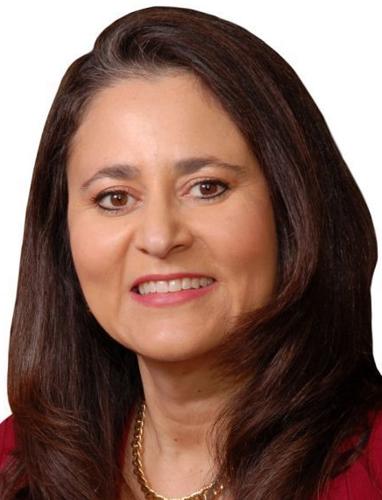Tucson-area voters declared Tuesday a sort of tax-rejection day.
Across the area, voters rejected most ballot issues that would have raised local taxes to pay for schools, fire departments and a big park.
In most cases, voters didn’t just say “No” but “Hell no!”
Here’s a rundown of preliminary results:
- Strong Start Tucson, the half-cent sales-tax increase for preschool programs, lost 66 to 34 percent
- TUSD’s $180 million bond issue lost 59 to 41 percent
- Marana school district’s budget override lost 62 to 38 percent
- Sunnyside school district’s budget override lost 64 to 36 percent
- Oro Valley’s $17 million bond issue for Naranja park lost 72 percent to 28 percent
- Picture Rocks Fire District’s budget override lost 58 to 42 percent
The ballot issues that bucked the trend and won were:
- The one-tenth-of-a-cent Tucson sales-tax increase for Reid Park Zoo, which barely squeaked by
- Flowing Wells School District’s $29 million bond issue, which won overwhelmingly
- Avra Valley Fire District’s budget override, which won 52 to 48 percent
- Drexel Heights fire district’s override, which won 68 to 32 percent
Pima County GOP Chair David Eppihimer, who helped lead opposition to the Strong Start Tucson proposition, explained the results as tax fatigue.
“I think the people are weary of additional taxes and not seeing that they’re producing results that they approve of or would expect,” he said. “We’re seeing a reaction to the piling on that occurs.”
I think he’s probably right. Local taxpayers seem willing to raise taxes for two things, roads and public safety. Otherwise, we’re not seeing our wages go up enough to justify increasing our taxes for other things, too.
Oro Valley may be a case in point. Voters there told the developer-backed Town Council that the town has gone far enough in raising taxes and making deals to pay for local amenities. The margin of defeat for Prop. 454, which would have allowed the city to sell $17 million in bonds to pay for a Naranja Park expansion, was overwhelming.
Up till now, OV’s plans — such as the 2015 golf-course purchase and the Oro Valley Marketplace tax deal — have been hotly contested but ultimately have passed. The Town Council majority even survived a recall attempt after the controversial golf course deal.
This time, though, no deal.
“I hope the people have finally realized that builders and developers are supporting the fiscally irresponsible actions by the council,” former council member and anti-proposition activist Mike Zinkin told me.
Mayor Satesh Hiremath said he was surprised not enough parents voted yes to accelerate the development of the park, and that he thought they missed an opportunity to create another new destination that would bring visitors and money to Oro Valley.
Overall, though, we are in a metro area with continuing economic malaise, where voters don’t seem to trust most local governmental jurisdictions enough to hand over more money. Unless it’s about roads or safety. In those case, tax increases may have a chance.
CD2 dam ready to burst
My colleague Joe Ferguson listed eight names the other day of Republicans who may run in Congressional District 2 if Rep. Martha McSally decides, as expected, to challenge for the seat Sen. Jeff Flake is leaving. Most of them, as Joe will freely admit, aren’t realistic.
Here are my three or so semi-realistic picks to run: Lea Marquez-Peterson, the president of the Tucson Hispanic Chamber of Commerce and close ally of Gov. Doug Ducey; Shelley Kais of Sahuarita, who ran and lost in the race for state Senate last year; and Todd Clodfelter, who is a state representative in Legislative District 10.
All the other names mentioned so far, in my mind, are unlikely to run for various individual reasons. Marquez-Peterson is a favorite of the state GOP establishment. Kais, who told me she’s considering a run, has some name recognition in the party and ran for the nomination in CD2 in 2014, losing to McSally. Clodfelter faces a difficult re-election race in a legislative district that leans Democratic, plus his children are grown, and one of them works in Washington, D.C. I could imagine him running.
But I also imagine a more conservative Republican, or a more staunchly pro-Trump, Republican, is likely to jump in the race, too. I just can’t pinpoint who — yet.
awkward position
for McSally
If Rep. McSally is going to run for Senate, she’s making an awfully long, dragged-out job of it. Her colleague, Rep. David Schweikert, made everyone believe she had decided when he told Bob Christie of the Associated Press that she had told her Arizona GOP colleagues she would run.
But so far, no announcement. Then Thursday, Neil Cavuto of Fox Business introduced her by saying, “She is running, by the way, to replace Sen. Jeff Flake who is retiring.” McSally quickly corrected him: “That’s not announced yet, so I just want to clarify that.”
Dems start fighting
It took some time, but finally the Democratic contenders for the nomination in CD2 are starting to go after the apparent leader, Ann Kirkpatrick.
Specifically, Matt Heinz is doing so. Heinz, who lost handily to McSally in 2016, established a website, FlagstaffAnn.com, that intends to point out where Kirkpatrick’s record falls short in the minds of Democratic primary voters.
First stop: The National Rifle Association. Heinz’s page points out Kirkpatrick has repeatedly complimented the NRA and defended gun rights, a stand that may have been popular in her old district in Northern Arizona but may be less so among Tucson-area Democrats.
The audacity of Koz
You’ve got to hand it to Steve Kozachik. The Tucson council member just did the political equivalent of stripping down to a Speedo and flexing massive muscles.
Koz first ran as a Republican, you may remember, winning an upset victory in a Democrat-dominated ward and city. Then he converted into a Democrat before his first re-election bid, and won handily.
In his second re-election campaign, Kozachik decided he wouldn’t take any outside contributions, encouraging donors instead to donate to local nonprofits. He spent about $141 of his own money. He campaigned lightly. And he won 60 percent of the vote.
My role with Rodriguez
I have to take some credit or blame for the political efforts of the Republican whom Kozachik beat, Mariano Rodriguez. He reminded me Tuesday when I saw him at the GOP election-night party that this public political journey of his began when I was at the midtown home of a friend of mine and saw a nearby house with Trump signs. It was a rarity in that neighborhood.
I knocked on the door and Rodriguez answered. We talked and exchanged contact info, which I passed on to colleague Joe Ferguson, who ended up doing a story on Rodriguez in March 2016. The ball kept rolling. Rodriguez was interviewed by CNN’s Anderson Cooper, became a better-known local Republican and ended up challenging for a council seat.







